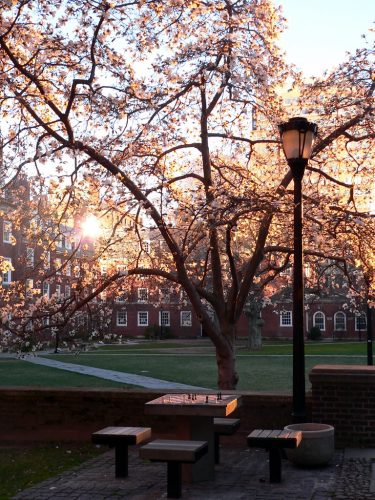
Drew Harwell (@DrewHarwell) wrote a balanced article in the Washington Post about the ways universities are using wifi, bluetooth, and mobile phones to enact systematic monitoring of student populations. The article offers multiple perspectives that variously support and critique the technologies at play and their institutional implementation. I’m here to lay out in clear terms why these systems should be categorically resisted.
The article focuses on the SpotterEDU app which advertises itself as an “automated attendance monitoring and early alerting platform.” The idea is that students download the app and then universities can easily keep track of who’s coming to class and also, identify students who may be in, or on the brink of, crisis (e.g., a student only leaves her room to eat and therefore may be experiencing mental health issues). As university faculty, I would find these data useful. They are not worth the social costs.
One social consequence of SpotterEDU and similar tracking applications is that these technologies normalize surveillance and degrade autonomy. This is especially troublesome among a population of emerging adults. For many traditionally aged students (18-24), university is a time of developmental transition—like adulting with a safety net. There is a fine line between mechanisms of support and mechanisms of control. These tracking technologies veer towards the latter, portending a very near future in which extrinsic accountability displaces intrinsic motivation and data extraction looms inevitable.
Speaking of data extraction, these tracking technologies run on data. Data is a valuable resource. Historically, valuable resources are exploited to the benefit of those in power and the detriment of those in positions of disadvantage. This pattern of reinforced and amplified inequality via data economies has already played out in public view (see: targeted political advertising, racist parole decisions, sexist hiring algorithms). One can imagine numerous ways in which student tracking will disproportionately affect disadvantaged groups. To name a few: students on financial aid may have their funding predicated on behavioral metrics such as class attendance or library time; “normal” behaviors will be defined by averages, which implicitly creates standards that reflect the demographic majority (e.g., white, upper-middle class) and flags demographic minorities as abnormal (and thus in need of deeper monitoring or intervention); students who work full-time may be penalized for attending class less regularly or studying from remote locations. The point is that data systems come from society and society is unequal. Overlaying data systems onto social systems wraps inequality in a veneer of objectivity and intensifies its effects.
Finally, tracking systems will not be constrained to students. It will almost certainly spread to faculty. Universities are under heavy pressure to demonstrate value for money. They are funded by governments, donors, and tuition-paying students and their families. It is not at all a stretch to say that faculty will be held to account for face time with students, time spent in offices, duration of classes, and engagement with the university. This kind of monitoring erodes the richness of the academic profession with profound effects on the nature of work for tenure-line faculty and the security of work for contingent lecturers (who make up an increasing majority of the academic workforce).
To end on a hopeful note, SpotterEDU and other tracking applications are embedded in spaces disposed to collective action. Students have always been leaders of social change and drivers of resistance. Faculty have an abundance of cultural capital to expend on such endeavors. These technologies affect everyone on campus. Tenure-line faculty, contingent faculty, and students each have something to lose and thus a shared interest and common struggle[1]. We are all in the mess together and together, we can resist our way out.
Jenny Davis is in Twitter @Jenny_L_Davis
Headline pic via: Source
[1] I thank James Chouinard (@jamesbc81) for highlighting this point
